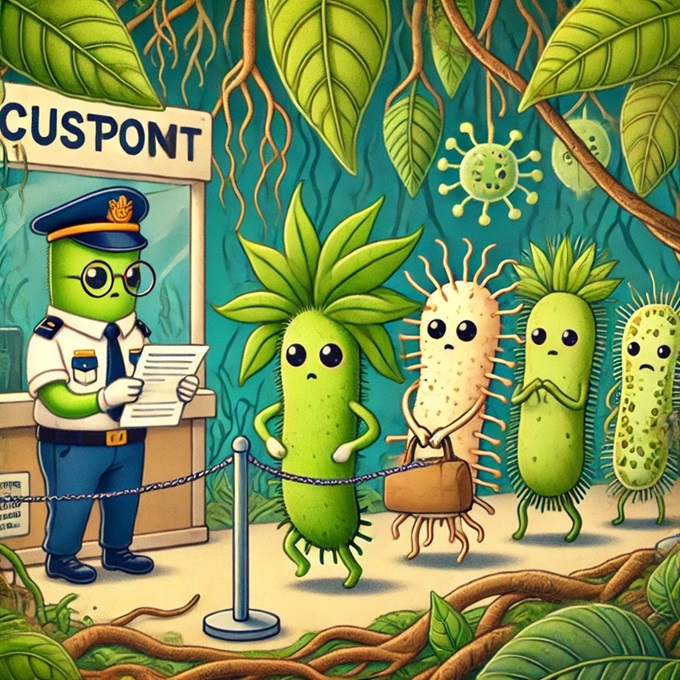[Ka Wai Ma] Bacteria in invisibility cloak
POST:
The plant's immune system can recognize molecules of bacteria to determine if it is a foreign microorganism, in the same way as we have to undergo customs check when we go abroad. Microorganisms can avoid this by camouflaging, modifying the bacterial molecule or actively suppressing the immune response.
Imagine you are a skilled spy trying to sneak through customs. Keeping a low profile to avoid unnecessary attention is key.
The plant immune system has developed a sophisticated strategy to detect foreign microbes by recognising specific molecules produced by the bacteria. A recent study from Ka-Wai Ma's laboratory at IPMB has uncovered a group of commensal bacteria called Xanthomonadales that have the ability to hide from plant recognition. Dr. Ma explains their study as follows. "Think of these commensal bacteria as skilled spies - rather than raising alarm or suspicion, they are very good at hiding. From a more scientific point of view, these bacteria can use tools, probably hydrolytic enzymes (analogous to a pair of scissors), to cut out conspicuous features to tell plants that this is a bacterium. More importantly, these scissors help not only the producer but also other microbes to hide. Like wearing a Harry Potter invisibility cloak. These bacteria can also use a second mechanism to suppress the plant's immune system, but in a more brutal way, by directly suppressing the immune system, just like knocking out the customs officer.
Why is this important? Just like in the gut, good and bad bacteria coexist. The plant's immune system acts as the first line of defence against pathogens. Although commensals are not pathogens, they also develop the ability to suppress plant immunity, indirectly affecting plant resistance to pathogens. So these commensal bacteria are not as harmless as we thought. Understanding this interaction could lead to better ways of controlling pathogens and understanding the importance of these commensal bacteria in modulating plant immunity. So next time you see a healthy plant, remember: a microscopic community is working hard to keep it that way!